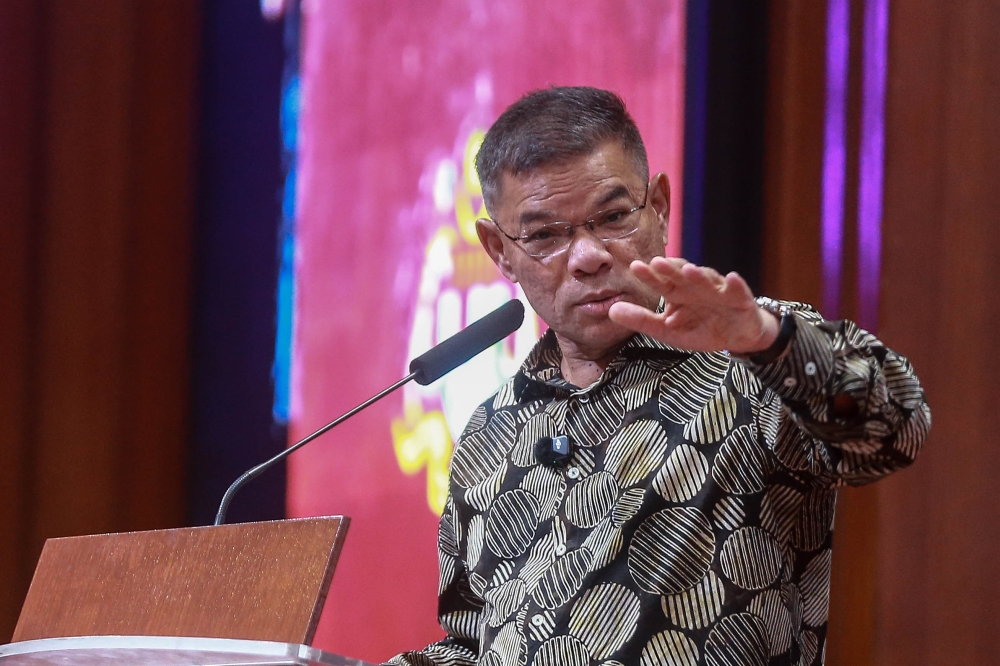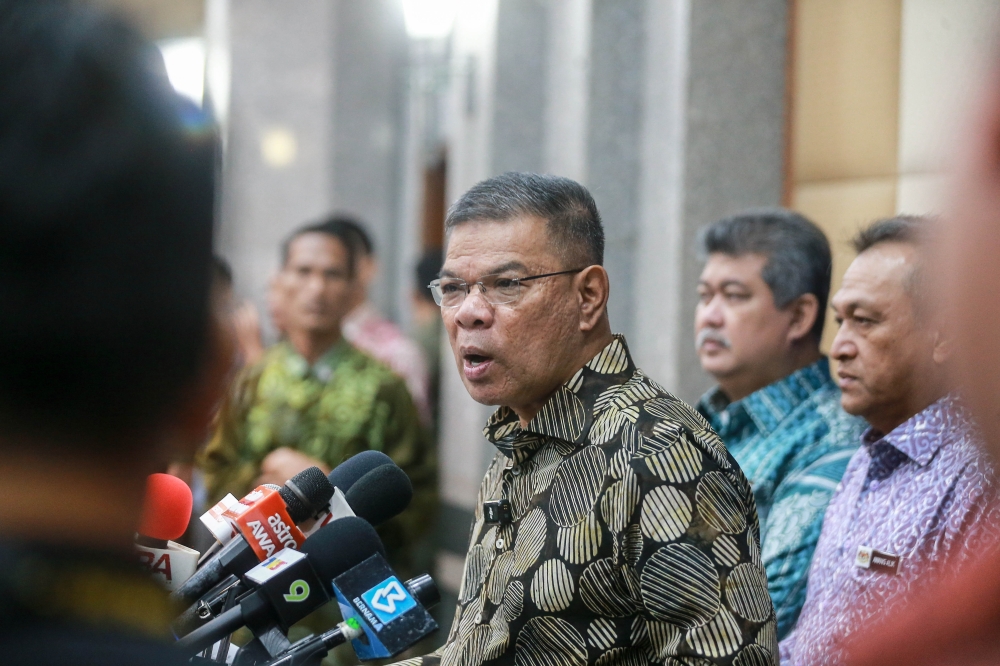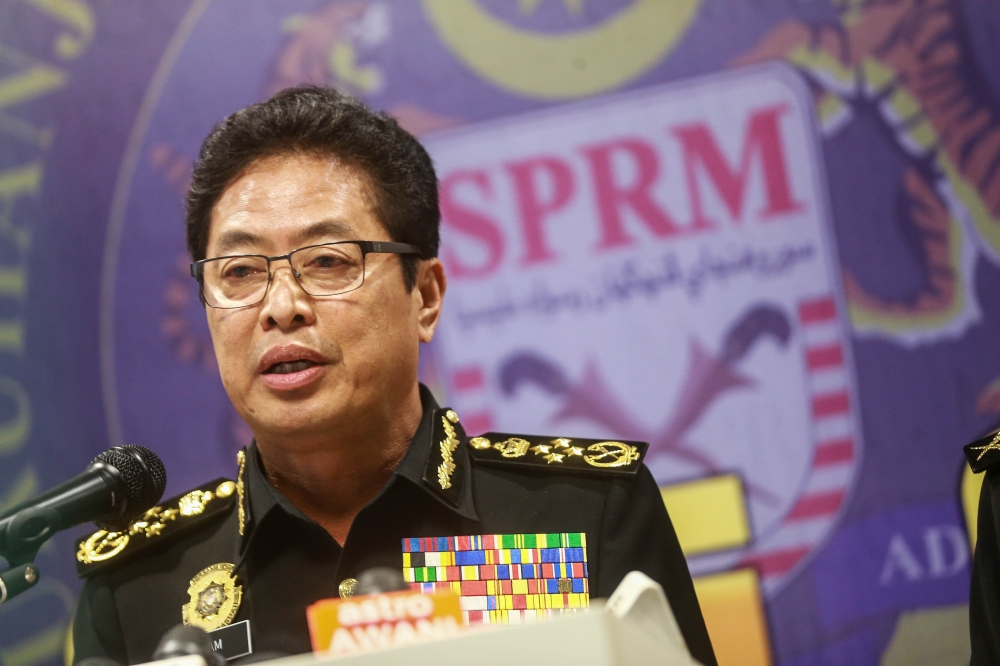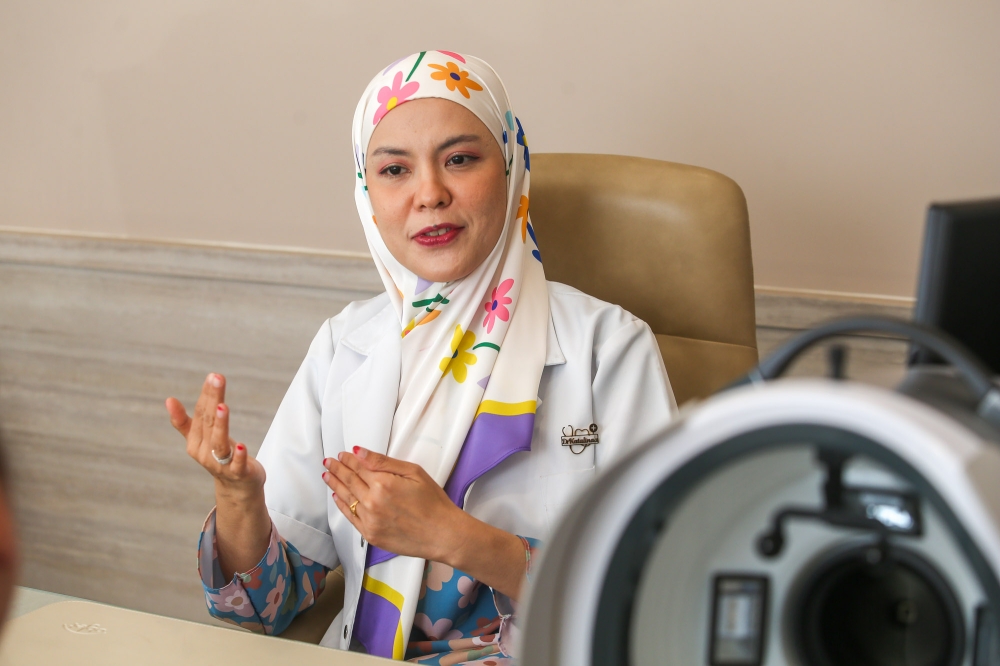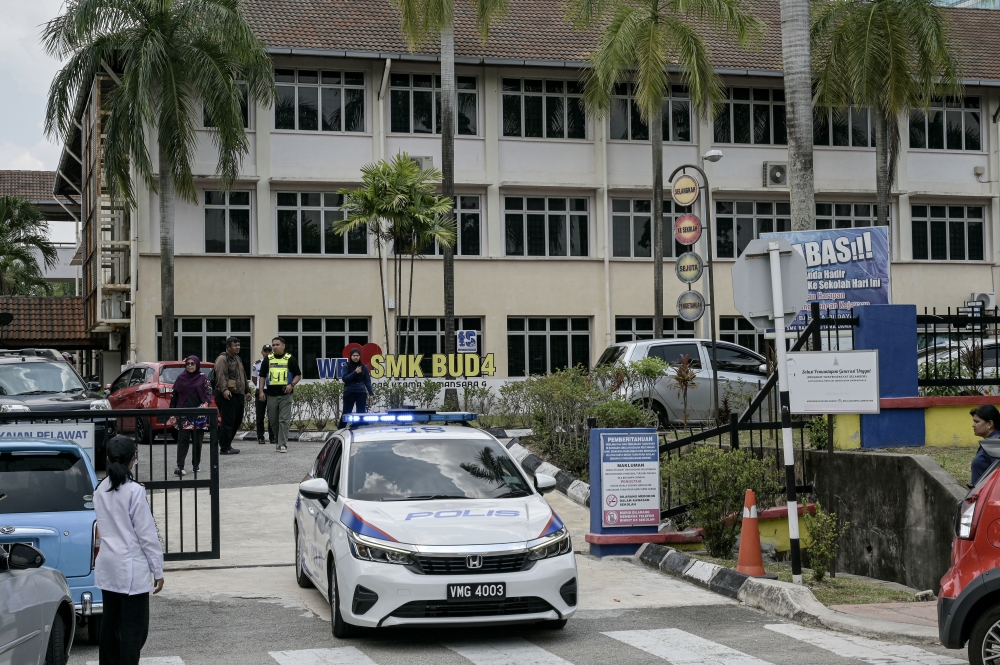KUALA LUMPUR, Feb 15 — Muhammad Sirajuddin Othman, an English teacher in Perlis, did not turn up for work for 15 months — in 2011 and 2012 — because he had to take care of his father who had colon cancer and later died.
However, he was only sacked last November for absenteeism even though the 43-year-old went back to work in Sekolah Menengah Kebangsaan Syed Alwi, Kangar from 2013 onwards.
Instead of being terminated for being away without official leave in 2011 (or even 2012!), he was only given the boot almost seven years later!
Current government policy only allows cancer patients in the civil service — not caregivers — to take full-paid medical leave for two years. As a teacher, Sirajuddin was only eligible for seven days’ annual leave then (now 10).
“Currently, there are no provisions under the law that governs caregivers,” Sirajuddin told Malay Mail in a recent interview.
“Most cancer patients are weak due to chemotherapy and they need the caregiver to take them to the hospital or look after their needs,” he added. “In Malaysia, people still do not understand the role of the caregivers.”
From 2011 to 2012, Sirajuddin was absent from work without permission for 456 days (including weekends), according to the Education Service Commission’s (SPP) disciplinary letter sighted by Malay Mail, to take his father to and from their home in Perlis to the University Malaya Medical Centre (UMMC) in Kuala Lumpur about twice a month for treatment.
Sirajuddin said the seven-hour journeys ran up a whopping 485,000 kilometres in mileage on his Kancil in 13 years.
“We as a family decided to send my late father to UMMC because we thought that UMMC was the best. Furthermore, at that time we had limited knowledge of cancer and I thought that through chemotherapy and radiotherapy, it could be cured.
“It never came across our mind that the cancer could spread to his lungs and liver,” he said.
During that period, his sister-in-law was diagnosed with stage four ovarian cancer, leaving him as sole caregiver to his father. That was when Sirajuddin readily admitted that he “decided to go AWOL.”
He admitted that he did not ask his supervisors for permission to take leave for any of the off days he took since 2011, saying he felt that his application would be rejected and the school would have to get approval from the Perlis Education Department.
“At that time, it was so sudden... nobody could take care of my father.”
Sirajuddin returned to work in 2013, but he said he was again absent without permission for about five months in 2015 after his father’s death in July 2014 because of a family dispute over the estate.
He was living with his mother who was unwell at that time and had to take care of her, even paying for care if he had outside appointments.
He also had to deal with a bank chasing him for repayment of a RM40,000 loan he took to cover his father’s treatment, all of which caused him to fall into depression. His mother had to sell her house in Kuala Lumpur to finance the treatment.
“The operations and hospitalisation cost between RM70,000 and RM90,000 at the Kedah Medical Centre (KMC) from 2009 to 2014,” said Sirajuddin.
Even though Sirajuddin took his father for chemotherapy and radiotherapy at UMMC, where treatment was mostly free because he was a civil servant, he would send his father to KMC, a private hospital, whenever complications happened while they were back home in Perlis. His father succumbed to his illness at KMC.
Sirajuddin said he went back to work as usual from 2016 onwards until the federal SPP sacked him on November 12, 2018 though he claimed to have only received his termination letter from his school principal on December 13.
“I’m quite surprised because I’ve been working the past three years without problems,” said Sirajuddin, showing Malay Mail copies of his performance appraisals in 2016 and 2017 where he was rated “high” at 86.27 per cent and “excellent” at 91.67 per cent respectively.
SPP’s disciplinary letter stated that he was absent for 26 days each in 2016 and 2017. Sirajuddin explained that he had to care for his mother who had bronchitis, asthma, diabetes, high blood pressure, and heart disease, pointing out too that he did not receive any warning letter or counselling from the Perlis Education Department at that time.
Sirajuddin also claimed he was asked to pay back his November 2018 wages even though he allegedly received his termination letter only in December.
He said he was not paid wages in 2011 during his absence or even when he reported for duty, only getting his salary from the third quarter of 2013 onwards in daily, rather than monthly, payments. Whenever he was absent, his wages were deducted.
So why didn’t Sirajuddin ask for permission for leave?
An education official said Sirajuddin did not respond to calls by the school and Perlis Education Department when he went AWOL.
“He said he had MCs, why didn’t he present it then?” the official told Malay Mail on condition of anonymity because he was not authorised to speak about the case.
“He should have given the documents during his absence. He didn’t report to the principal when he was absent.”
He said the school schedule would be disrupted if even one teacher skipped work.
“Is it fair to the 30, 40 pupils? This had been going on for two years.”
The education official also said SPP did not have the option of demoting Sirajuddin as the teacher was at the lowest grade of the civil service, Grade 41.
“So the only option is to terminate.”
When asked why it took seven years to terminate Sirajuddin for absenteeism, the education official said: “When disciplinary action is taken against an officer, the disciplinary proceeding won’t take place that year itself. It takes time.”
He said the Perlis Education Department sent a report on Sirajuddin to SPP in 2015, after which there was much back and forth between the two parties to ascertain details of the charges.
“In 2016, there was still a lot of backlog. The discipline unit and SPP expedited this case.”
Perlis Education Department director Izmi Ismail told Malay Mail that there was only general leave for civil servants and no special leave for caregivers, unlike the two years’ leave for cancer patients.
“There is unpaid leave or half-pay leave. Must apply first before you go on leave,” said Izmi.
SMK Syed Alwi principal Ghazali Ahmad told Malay Mail that he only joined the school in January 2018, when asked about Sirajuddin’s prior absenteeism.
“I didn’t handle the case,” Ghazali said when contacted.
The principal declined to show Sirajuddin’s discipline file or comment on the teacher’s performance.
SPP tells Sirajuddin to sue
Sirajuddin said the SPP sent him a disciplinary letter dated July 25, 2018 with charges of absenteeism, to which he replied with a representation letter on August 15, 2018 explaining about his father’s illness and family circumstances.
But the SPP decided to terminate his employment on November 12 and withhold emoluments during his absence.
In an appeal letter to SPP on January 2 to lighten his punishment, Sirajuddin insisted that he had the constitutional right to an appeal, citing Articles 135(2) and Article 144(5A)(b) of the Federal Constitution.
However, SPP chairman Tan Sri Khair Mohamad Yusof said Sirajuddin was absent from work without leave, permission, or reasonable cause for 677 non-consecutive days from January 7, 2011 to November 23, 2017.
He also said SPP’s decision was final as the commission’s work in disciplinary cases was “quasi judicial.”
“In line with that, according to common law, a body like SPP cannot change or amend a decision that has already been made. When a decision has been made by SPP, SPP’s duties in that case are considered to be concluded or functus officio.
“In other words, any changes made by SPP that violate the doctrine of functus officio are not valid and therefore, in those circumstances, the first order or decision must be retained and enforced. Based on the facts as explained, SPP cannot consider the officer’s appeal,” Khair told Malay Mail.
He said if Sirajuddin was still dissatisfied with SPP’s decision, the teacher could file a judicial review in court.

